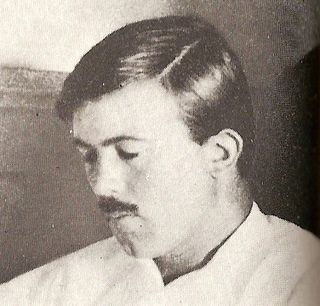A Quote by Wallace Stevens
The thinker as reader reads what has been written.
He wears the words he reads to look upon
Within his being.
Related Quotes
If someone considers the prophetic writings with all the diligence and reverence they are worth, while he reads and examines with great care, it is certain that in that very act he will be struck in his mind and senses by some more divine breath and will recognize that the books he reads have not been produced in a human way, but are words of God.
It has often been said there’s so much to be read, you never can cram all those words in your head. So the writer who breeds more words than he needs is making a chore for the reader who reads. That's why my belief is the briefer the brief is, the greater the sigh of the reader's relief is. And that's why your books have such power and strength. You publish with shorth! (Shorth is better than length.)
Just as one spoils the stomach by overfeeding and thereby impairs the whole body, so can one overload and choke the mind by giving it too much nourishment. For the more one reads the fewer are the traces left of what one has read; the mind is like a tablet that has been written over and over. Hence it is impossible to reflect; and it is only by reflection that one can assimilate what one has read. If one reads straight ahead without pondering over it later, what has been read does not take root, but is for the most part lost.
The reader reads aloud, with a sing-song up … then down … then down again cadence. My mood shifts from merely reluctant to derisive. It’s a tired reading style. I’m sick of it. It attaches more importance to the words than the words themselves—as they’ve been arranged—could possibly sustain, and it gives poets and poetry a bad name.





































